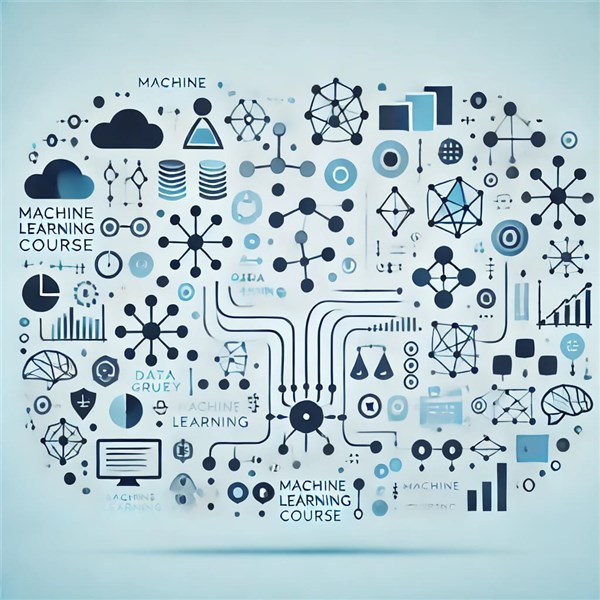
In the digital age, machine learning (ML) has emerged as a transformative technology that is reshaping industries across the globe. From finance and healthcare to entertainment and transportation, the applications of machine learning are virtually limitless. With the growing demand for professionals skilled in machine learning, pursuing a machine learning course can be a wise investment in your career. In this blog, we will explore the essential skills you will learn in a machine learning course and how these skills can help you navigate the evolving landscape of technology.
Understanding Machine Learning
Before diving into the skills acquired through a machine learning course, it's essential to understand what machine learning is. Machine learning is a subset of artificial intelligence (AI) that enables computers to learn from data and make predictions or decisions without being explicitly programmed. ML algorithms analyze patterns in data and improve their performance over time as they are exposed to more data. This ability to learn and adapt is what makes machine learning a powerful tool in various domains.
1. Foundational Knowledge in Mathematics and Statistics
One of the first things you will learn in a machine learning course is the foundational knowledge of mathematics and statistics. This includes:
- Linear Algebra: Understanding vectors, matrices, and operations involving them is crucial for working with data in machine learning.
- Calculus: Concepts such as derivatives and gradients are important for optimization algorithms that help minimize error in ML models.
- Probability and Statistics: Knowledge of probability distributions, hypothesis testing, and statistical significance is vital for interpreting data and making informed decisions based on it.
Having a strong grasp of these mathematical concepts will enable you to understand how machine learning algorithms work and how to tune them for better performance.
2. Programming Skills
Programming is at the core of machine learning. Most courses will require you to become proficient in programming languages commonly used in the field, such as:
- Python: Python is the most popular programming language for machine learning due to its simplicity and the vast array of libraries available, including NumPy, pandas, and scikit-learn.
- R: R is another popular language, especially in academia and statistics, known for its data analysis capabilities.
- Java and C++: While not as common as Python, knowledge of these languages can be beneficial for implementing machine learning algorithms in production environments.
Courses typically include hands-on coding exercises to reinforce your programming skills and enable you to build your own machine learning models.
3. Data Preprocessing and Cleaning
Real-world data is often messy and unstructured. A crucial skill learned in a machine learning course is how to preprocess and clean data effectively. This involves:
- Data Cleaning: Identifying and addressing missing values, duplicates, and outliers to ensure that the data is accurate and reliable.
- Data Transformation: Techniques such as normalization, standardization, and encoding categorical variables to make the data suitable for modeling.
- Feature Engineering: Creating new features from existing data that can improve the performance of machine learning models. This might include techniques such as polynomial features, interactions, and domain-specific transformations.
Proficiency in data preprocessing is vital as it can significantly impact the performance of your machine learning models.
4. Understanding Machine Learning Algorithms
A core component of any machine learning course is an in-depth exploration of various machine learning algorithms. You will learn about:
- Supervised Learning: Techniques such as linear regression, logistic regression, decision trees, and support vector machines, where models are trained on labeled data.
- Unsupervised Learning: Algorithms like k-means clustering and hierarchical clustering, which identify patterns in unlabeled data.
- Reinforcement Learning: Understanding how agents learn to make decisions through trial and error, receiving rewards or penalties based on their actions.
- Deep Learning: Exploring neural networks and deep learning architectures, which are particularly powerful for tasks such as image and speech recognition.
By understanding these algorithms, you will be equipped to choose the right approach for different types of problems and datasets.
5. Model Evaluation and Validation
Learning how to evaluate and validate machine learning models is essential for ensuring their effectiveness. You will gain skills in:
- Performance Metrics: Understanding metrics such as accuracy, precision, recall, F1-score, and ROC-AUC to evaluate the performance of classification models.
- Cross-Validation: Techniques to assess how the results of a statistical analysis will generalize to an independent dataset, helping to prevent overfitting.
- Hyperparameter Tuning: Learning how to optimize model parameters to improve performance, often using techniques like grid search and random search.
Mastering model evaluation ensures that you can build robust models that perform well on unseen data.
6. Deployment and Productionizing Models
Once a machine learning model is built and evaluated, it must be deployed in a production environment to deliver value. You will learn about:
- Model Deployment: Techniques for deploying models to production, including REST APIs, containerization with Docker, and orchestration with tools like Kubernetes.
- Monitoring and Maintenance: Understanding the importance of monitoring model performance in real-time and maintaining models as data changes over time, ensuring they remain accurate and effective.
- Scaling: Techniques for scaling machine learning models to handle larger datasets and more complex tasks.
These skills are vital for taking machine learning solutions from development to production, where they can be utilized by end-users.
7. Hands-On Projects
Most machine learning courses emphasize hands-on experience through projects. This practical application of skills is crucial for reinforcing your learning and building a portfolio. Projects may include:
- Building a Predictive Model: Using real-world datasets to build models that can make predictions based on historical data.
- Data Visualization: Creating visualizations to help interpret and present data insights effectively.
- Participating in Kaggle Competitions: Engaging in machine learning competitions to apply your skills in a competitive setting and learn from other practitioners.
Working on projects not only solidifies your understanding but also provides you with tangible examples to showcase to potential employers.
Conclusion
Pursuing a machine learning course offers a wealth of knowledge and skills essential for a successful career in this rapidly evolving field. From foundational mathematics and programming to practical application through projects, the skills you acquire will empower you to tackle real-world challenges using machine learning. As businesses increasingly rely on data-driven decision-making, the demand for skilled machine learning professionals will continue to grow, making now an ideal time to embark on your learning journey. Whether you're looking to transition into a new career or enhance your existing skill set, a machine learning course can be your gateway to a rewarding future in technology.
Koenig Solutions is a leading IT training company providing certifications in top technology courses. Our machine learning course is designed to equip you with the skills necessary to excel in this exciting field. With our expert trainers and hands-on approach, you'll be ready to make a significant impact in your organization.

.pngM.jpg)




min.pngM.jpg)
COMMENT